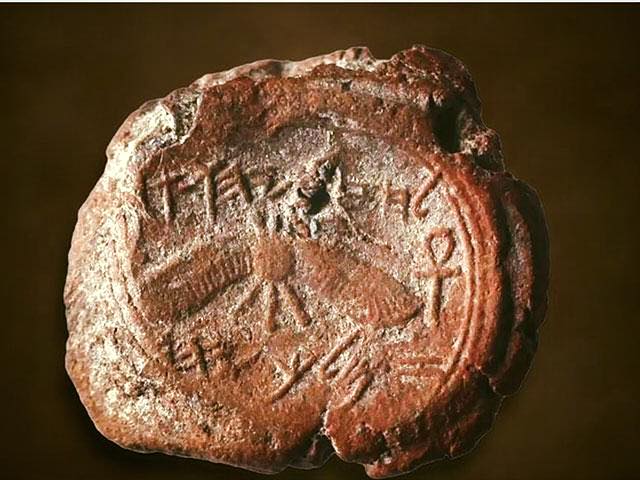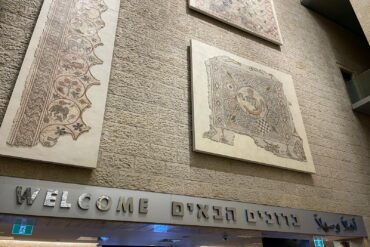Nisan – the month of springtime – is actually the first month of the internal Hebrew calendar.
On the first day of Nisan in the year 2448 (1313 BCE), two weeks before our liberation from Egypt, Moshe was shown the crescent moon and instructed to establish the Hebrew calendar through sanctifying the new month.
“This month shall be for you the head of months, the first of the months of the year.” (Sh’mot 12:2)
This was essentially the first commandment that we received as a nation and it was important for establishing Israel as an independent identity.
A national calendar is an important feature of any civilization. We can see this from the fact that when the Seleucid-Greek King Antiochus IV attempted to destroy our identity, one of the laws he enacted alongside banning Shabbat, circumcision and studying Torah was the banning of our calendar. This alone should demonstrate just how crucial a calendar is to a national identity. Its festivals and days of mourning tell a people its story and reinforce its shared memory, basic common values and worldview.
Israel received our calendar two weeks before actually leaving Egypt because part of our psychological liberation required us to stop using the Egyptian calendar and to start using our own. This shift accelerated Israel’s transformation to a people that saw itself as distinct and completely independent from Egypt.
The uniqueness of the Hebrew calendar speaks volumes about Israel’s place in the world. The Egyptians used a solar calendar that would later be adopted by the Greco-Roman world, Christianity and eventually Western civilization. Babylon used a lunar calendar that would later be adopted by the Islamic world. Israel received a calendar that’s both lunar and solar, which integrates features of both major civilizations and reflects Israel’s role as a bridge between them.
(It should be noted that Israel’s calendar is actually not an equal synthesis of lunar and solar. It’s actually primarily lunar with minimal solar adjustments to ensure that the seasons for the most part remain in the same place each year. So although it’s true that Israel can be seen as a bridge between the Christian West and the Islamic East, we actually share more in common with one side than the other.)
So in addition to psychologically distancing Israel from Egypt, establishing our own calendar also oriented our ancestors towards realizing our universal role among the nations of the world, by serving as the bridge between civilizations.
In any case, the shift from using the Egyptian calendar to using our own accelerated Israel’s transformation to a people that saw itself as completely independent from our oppressors. It was the first commandment officially given to the Hebrew nation, even before we went free. This event commenced the calendar that Israel has been using ever since.
As the Hebrew calendar is lunar with solar adjustments, the beginning of the lunar calendar is Nisan and the start of our solar calendar is Tishrei.
The solar calendar is the international calendar, whereas the lunar calendar is the internal Hebrew calendar.
Nisan‘s first day therefore marks the new year by which our people measures the careers of national leaders.
The ideal Hebrew concept of melekh (generally translated into English as “king”) differs greatly from the monarchs that rule over other peoples.
A melekh is the concentrated expression of the collective Israeli soul – Knesset Yisrael – that manifests itself in our world through millions of bodies called Jews.
The melekh doesn’t actually rule over Israel but rather embodies the national mission and aspirations of his people to the extent that he becomes a microcosm of the entire nation and his personal identity is absorbed into Israel’s broader collective identity.
Rosh Ḥodesh Nisan greets us once a year and reminds us what real leadership means for the children of Israel.





